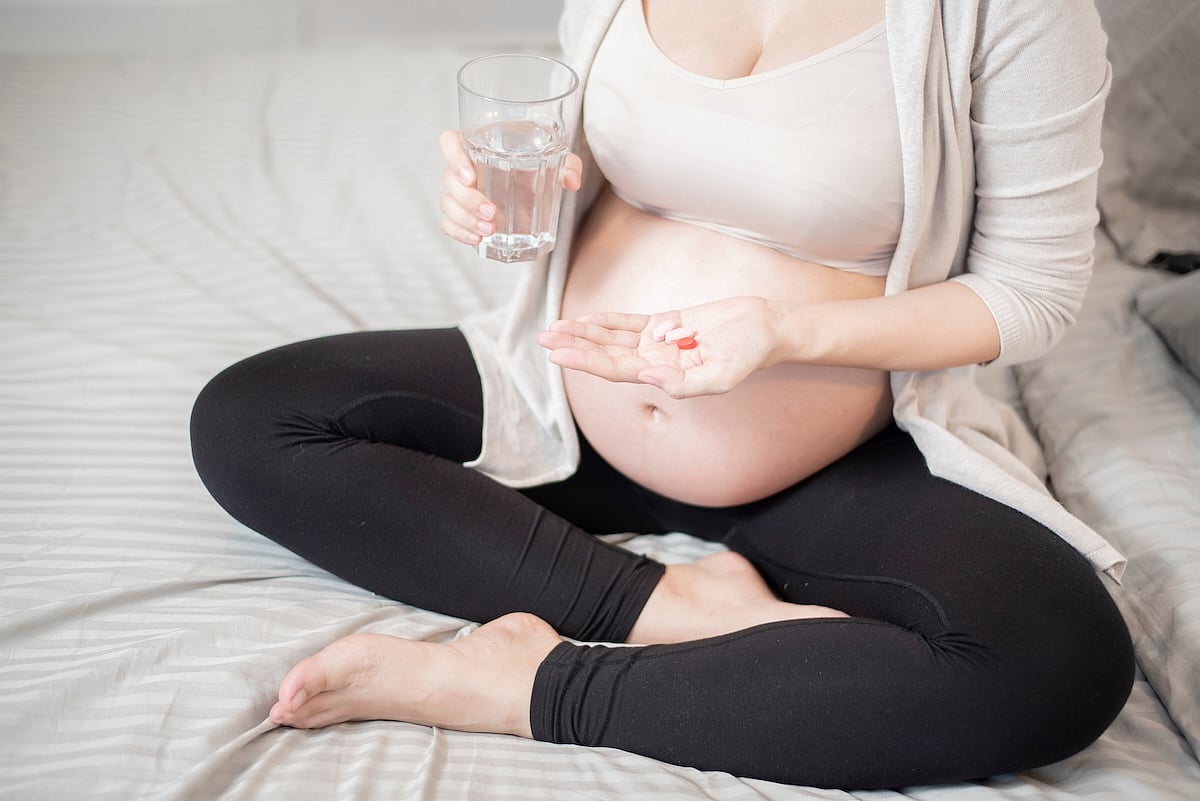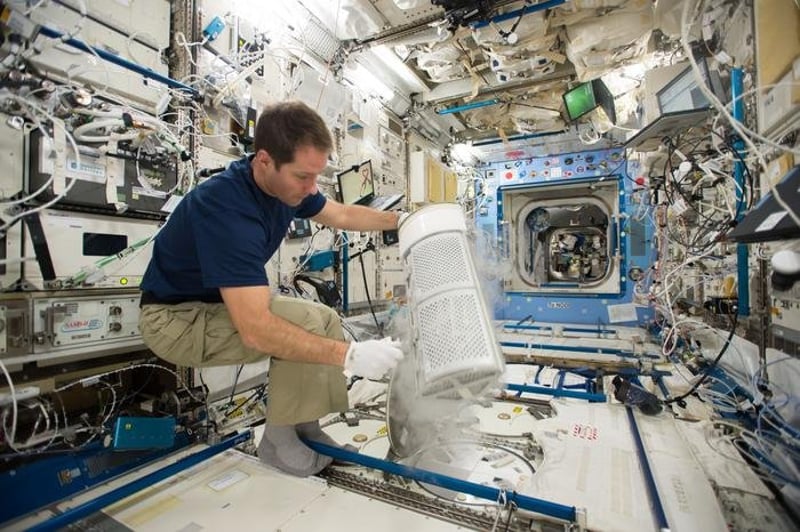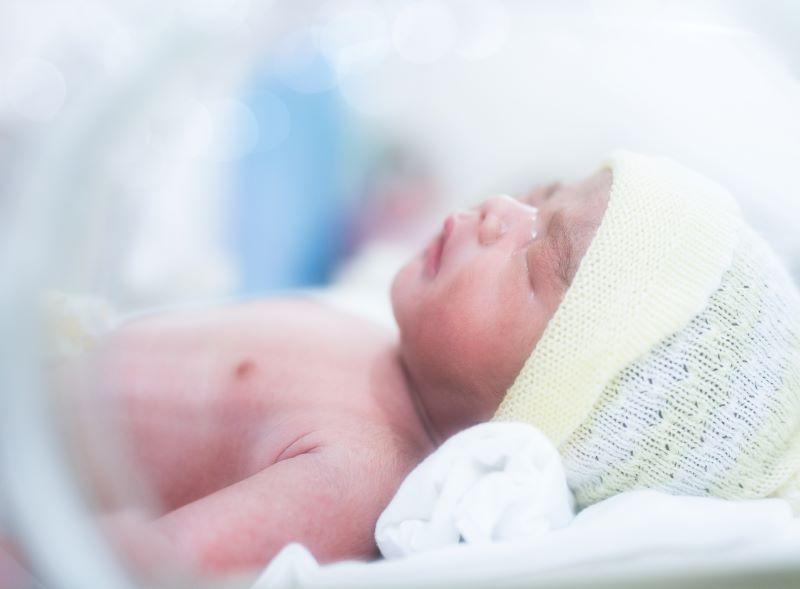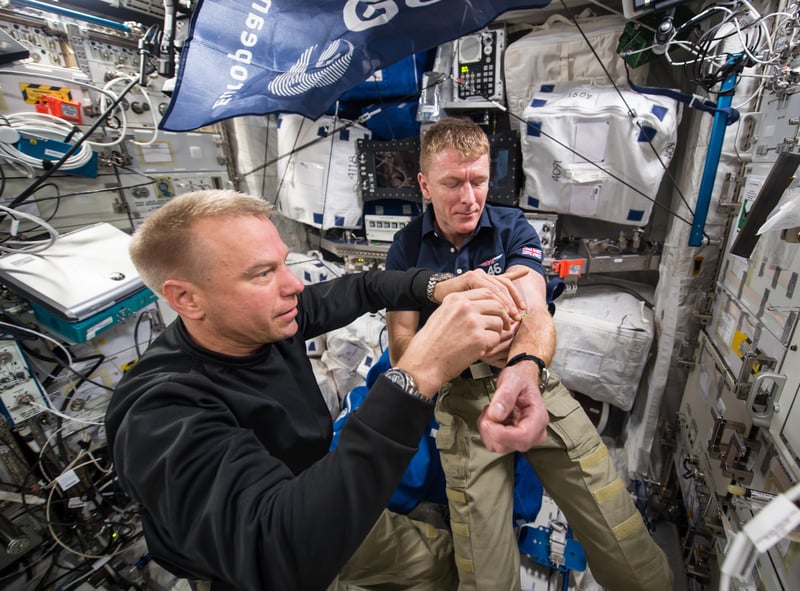Patient Resources
Get Healthy!
Results for search "Anemia".
Health News Results - 12
Anemia In Pregnancy Increases Risk Of Heart Defects
- HealthDay Reporter
- Dennis Thompson
- April 24, 2025
- Full Page
Treating anemia during pregnancy might lower the risk of heart defects in newborns, a new study says.
Women with anemia in early pregnancy have a 47% increased risk of giving birth to a child with a heart defect, researchers reported April 23 in
Study: Blood Transfusion Post-Heart Attack May Be Critical for Those with Anemia
- HealthDay Reporter
- Dennis Thompson
- December 27, 2024
- Full Page
A blood transfusion following a heart attack could be a life-saving measure for patients with anemia.
A new evidence review published in the journal
Many Cases of Iron Deficiency Go Too Long Without Proper Treatment
- HealthDay Reporter
- Dennis Thompson
- August 19, 2024
- Full Page
Iron deficiency isn’t being effectively treated in the United States, with low iron levels persisting for years in most patients, a new study finds.
Almost 3 of 5 (58%) patients with iron deficiency still had low iron levels three years after their diagnosis, resea...
Low Blood Iron Levels Might Contribute to Long COVID
- HealthDay Reporter
- Dennis Thompson
- March 5, 2024
- Full Page
Long COVID might be triggered by low iron levels in the blood from the person's initial infection, a new study claims.
It's remained a mystery why an estimated three out of 10 people infected with COVID go on to suffer lingering symptoms like fatigue, shortness of breath...
Space Travel Takes Toll on Astronauts' Blood, Bone
- HealthDay Reporter
- Cara Murez
- August 23, 2023
- Full Page
When astronauts travel to space, the experience depletes their red blood cells and bone, according to a new study.
Fortunately, it appears their bodies can eventually replenish them after they've returned to Earth, thanks to fat stored in the bone marrow.
"We foun...
Forty Percent of U.S. Girls, Young Women Are Iron Deficient
- HealthDay Reporter
- Denise Mann
- June 28, 2023
- Full Page
Nearly 4 out of 10 girls and young women aren't getting enough iron and they may have their periods to blame, a new U.S. study shows.
Menstrual bleeding, especially when heavy, is a major risk factor for iron deficiency and iron-deficiency anemia, the researchers explain...
Low-Dose Aspirin Could Raise Anemia Risks in Older Adults
- HealthDay Reporter
- Dennis Thompson
- June 20, 2023
- Full Page
Taking daily low-dose aspirin increases the risk of anemia in the elderly, a new clinical trial suggests.
Not only does it raise anemia risk by more than 20% in people 70 or older, it is also associated with a decline in blood iron levels, researchers report.
"This...
Four Signs That a Young Adult Might Have Colon Cancer
- HealthDay Reporter
- Cara Murez
- May 5, 2023
- Full Page
Four symptoms could provide early warning of colon cancer in younger adults.
Being aware of these red flags could lead to earlier detection and diagnosis for those under age 50, said researchers at Washington University School of Medicine in St. Louis.
The telltale...
Formula Feeding Raises Odds for Anemia in Very 'Preemie' Babies
- HealthDay Reporter
- Cara Murez
- December 13, 2022
- Full Page
Babies born prematurely who are fed formula may need iron supplementation like their breastfed counterparts, new research suggests.
"Just because a baby is on iron-rich formula, we should not assume all of their iron needs are being met, since iron from the formula may ...
Repeat Blood Donation Won't Harm Your Health
- HealthDay Reporter
- Dennis Thompson
- September 12, 2022
- Full Page
Frequent blood donors don't need to worry about iron deficiency harming their health, new research shows.
Even though about 35% of donors can become iron deficient after repeated blood dona...
IV Anemia Meds Can Sometimes Trigger Severe Allergy
- HealthDay Reporter
- Robert Preidt
- March 30, 2022
- Full Page
The chances of a severe allergic reaction being triggered by intravenous (IV) iron formulations for anemia are higher with some than others, but all pose a low risk, a new stu...
Astronauts at Risk of 'Space Anemia'
- HealthDay Reporter
- Robert Preidt
- January 17, 2022
- Full Page
Astronauts can develop a condition called space anemia because their bodies destroy more red blood cells than normal when in space, a groundbreaking study shows.
Assessments of 14 astronauts over six months between space missions found that 54% more blood cells were dest...












